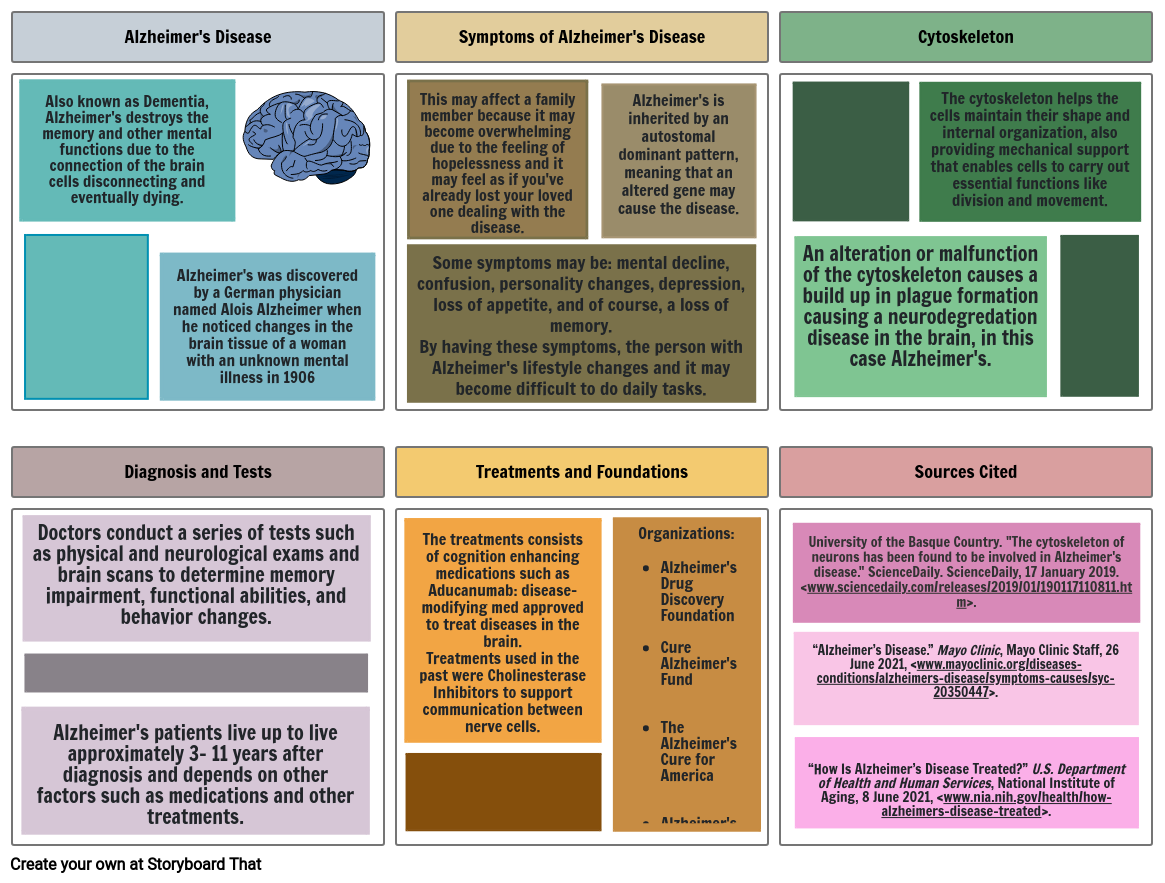Alzheimers

Text z Príbehu
- Alzheimer's Disease
- Also known as Dementia, Alzheimer's destroys the memory and other mental functions due to the connection of the brain cells disconnecting and eventually dying.
- Alzheimer's was discovered by a German physician named Alois Alzheimer when he noticed changes in the brain tissue of a woman with an unknown mental illness in 1906
- Symptoms of Alzheimer's Disease
- Some symptoms may be: mental decline, confusion, personality changes, depression, loss of appetite, and of course, a loss of memory.By having these symptoms, the person with Alzheimer's lifestyle changes and it may become difficult to do daily tasks.
- This may affect a family member because it may become overwhelming due to the feeling of hopelessness and it may feel as if you've already lost your loved one dealing with the disease.
- Alzheimer's is inherited by an autostomal dominant pattern, meaning that an altered gene may cause the disease.
- Cytoskeleton
- An alteration or malfunction of the cytoskeleton causes a build up in plague formation causing a neurodegredation disease in the brain, in this case Alzheimer's.
- The cytoskeleton helps the cells maintain their shape and internal organization, also providing mechanical support that enables cells to carry out essential functions like division and movement.
- Diagnosis and Tests
- Doctors conduct a series of tests such as physical and neurological exams and brain scans to determine memory impairment, functional abilities, and behavior changes.
- Treatments and Foundations
- The treatments consists of cognition enhancing medications such as Aducanumab: disease- modifying med approved to treat diseases in the brain.Treatments used in the past were Cholinesterase Inhibitors to support communication between nerve cells.
- Organizations:Alzheimer's Drug Discovery FoundationCure Alzheimer's Fund The Alzheimer's Cure for AmericaAlzheimer's Disease International
- Sources Cited
- University of the Basque Country. "The cytoskeleton of neurons has been found to be involved in Alzheimer's disease." ScienceDaily. ScienceDaily, 17 January 2019. <www.sciencedaily.com/releases/2019/01/190117110811.htm>.
- “Alzheimer’s Disease.” Mayo Clinic, Mayo Clinic Staff, 26 June 2021, <www.mayoclinic.org/diseases-conditions/alzheimers-disease/symptoms-causes/syc-20350447>.
- Alzheimer's patients live up to live approximately 3- 11 years after diagnosis and depends on other factors such as medications and other treatments.
- “How Is Alzheimer’s Disease Treated?” U.S. Department of Health and Human Services, National Institute of Aging, 8 June 2021, <www.nia.nih.gov/health/how-alzheimers-disease-treated>.
Bolo vytvorených viac ako 30 miliónov storyboardov

